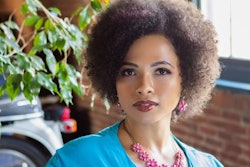African Americans received much of the blame shortly after California voters banned same-sex marriage last month. But a new poll released by the Public Policy Institute found that other social factors, not race, played a larger role in the initiative’s passage.
The controversial amendment to the state’s constitution, known as Proposition 8, was passed by just 52 percent on Nov. 4; pundits almost immediately pounced on data that showed nearly 70 percent of the state’s African American voters cast ballots in support of the ban, helping lead the defeat of gay marriage.
Television star and comedienne Roseanne Barr even called Blacks – traditionally committed to civil rights – “bigoted and ignorant” for helping to defeat gay rights.
But the poll, released earlier this month, runs counter to this frame of thought. It revealed that California voters who supported the ban were sharply divided by income, religion and age more so than race.
Results of the poll show:
- The proposition’s strongest support came from White conservatives and born-again Christians
- More than 80 percent of evangelicals were more likely to vote yes on the ban, while 60 percent of Catholics polled voted yes
- Nearly seven out of 10 voters with a high school education or less, and 57 percent of those with only some college supported the ban
- About 57 percent of voters with a college degree opposed the measure.
- More than 60 percent of voters in lower-income households and half of those in middle-income households voted for the measure, whereas more 55 percent of those in higher-income households voted against it.
“African Americans were set up to take the blame,” said John Newsome, president of San Francisco’s Bayard Rustin LGBT Coalition, an organization founded to empower lesbian, gay bisexual and transgender persons of color.
To the contrary, “African American organizations and leaders have been stalwarts in the LGBT Civil Rights movement,” added Newsome after reports indicating Blacks overwhelmingly supported the measure reached a fevered pitch.
While he agrees that faulting African Americans for passage of the ban might be overblown, Michael J. Rosenfeld, associate professor of sociology at Stanford University, said he’s not sure what percentage of California Black voters supported the ban.
“The issue hasn’t been polled extensively enough. Even in a big poll, the percentage of African Americans in California is small, relatively speaking,” Rosenfeld told Diverse. “(Race) was blown a little out of proportion. There are other communities who are more firmly and vocally against gay rights.
“The people who poured money into the state to back Prop. 8, those are the people that I think you can blame,” Rosenfeld continued. “That money didn’t come from African Americans. It came from the Mormon Church primarily, and the Catholic Church secondarily.”
While the debate concerning to what extent Blacks contributed to the passage of Proposition 8 continues, most young people did not support the ban. Younger people are generally supportive of gay rights, which is a good sign for gay rights, Rosenfeld added.
“When it comes to the idea of allowing gay and lesbian couples to be legally married in California, voters are split down the middle,” he said. “People born before 1940 have a very negative view of gay rights. Research shows that attitudes about sexuality and rights are fairly stable over the adult life course. What this means is that over time, as older birth cohorts get replaced by more recent ones, the society will become more tolerant of gay rights.”
Email the editor: [email protected]
Click here to post and read comments
© Copyright 2005 by DiverseEducation.com





















